6. Night Moves (1975)
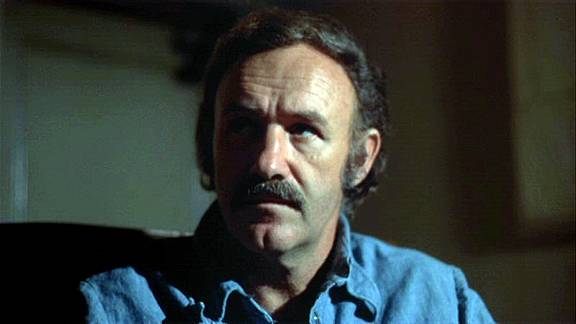
Arthur Penn’s seminal Night Moves (1975) is a film that often gets ignored, perhaps due to the fact that it isn’t remotely showy and is intensely character-based, if not fustily so. Gene Hackman eases himself into the curious role of Harry Moseby, a private investigator who is looking for the missing daughter of an ageing veteran actress. Melanie Griffith is the young girl, and James Woods has a minor part as Quentin, a sleazy mechanic.
The supporting players fit their roles like gloves, but this is Hackman’s show all the way through. The plot unwinds with subtlety, is beautifully directed by Penn, and is a real showcase for Hackman’s more reserved style of acting. Moseby is another one of his crumpled, slightly crusty middle aged outsiders, a man so into his work he’s found it’s had a negative effect on his personal life, and more specifically his marriage.
Night Moves is one of those quietly compelling, curious character studies, with Hackman as one of his most off-to-one-side obsessives, a man who pokes around so much in other people’s lives he’s forgotten to focus on his own. Like The Conversation’s Harry Caul, this is a perfect shell for Hackman to inhabit, and he gets right under Moseby’s skin from his first scene onward. The picture itself has a healthy pace, neat direction and complex characters expertly played by the whole cast, but it is Hackman who remains centre stage and demands (very quietly) our attentions until the bizarre closing chapter.
7. Stay Hungry (1976)
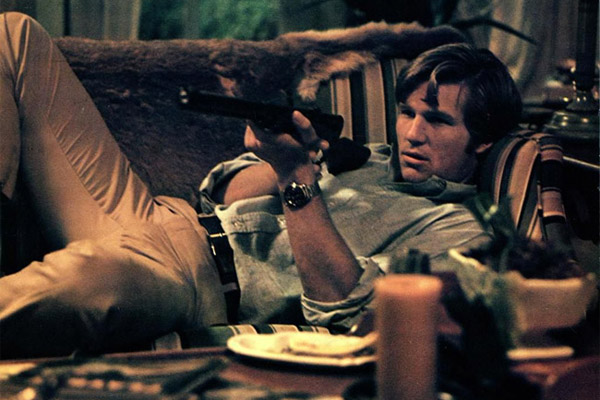
Bob Rafelson’s long forgotten Stay Hungry stars the great Jeff Bridges as Craig Blake, a wealthy young man whose parents recently died in a private air crash. Roaming around his mansion with the loyal live-in butler who’s served his family for decades (played by Scatman Crothers), Craig is bored, and struggles to keep himself occupied. As we are informed in a letter from his uncle, Craig has fallen in with some dodgy criminal types, who want him to scope out a gym they plan to buy as part of a financial scam they are running.
Craig pays the gym a visit, suited up in his best “businessman” attire, with a view of offering the owner a tidy sum for it. The longer he hangs around the gym however, the more involved and attached he gets to the people who spend their time there. For one, he falls for the receptionist, Mary (Sally Field), a sweet girl who reveals more layers as the film goes on and her own fondness for Craig deepens. He also becomes very close to Joe Santo (Arnold Schwarzenegger), a body-building star who is training for the Mr Universe contest, and likes to dress up in a bizarre Batman-esque costume.
The most interesting element in Stay Hungry on a thematic level is in the way Craig finds himself torn between two types of life; the privileged middle class life his family gave him (complete with snobbery and stiff rigidity) which clashes with the looser, more simultaneous nature of the body-builders, as well as the fiddlers and musicians out in the sticks, and even the criminals too. As in Five Easy pieces, Bob uses the divisions between the two camps, and Jeff Bridge’s torn loyalty to both social worlds, to dramatic effect. That said, the dramatic effect is not over-charged by sentimentality. It’s much more organic than that.
Whenever an interviewer mentioned Stay Hungry to Bob Rafelson, he was always genuinely pleased. Indeed, he seems to have had a soft spot for it. Sadly, Stay Hungry was not a success and was buried in the wave of more commercial Hollywood fare that started to flood the movie market in the mid to late 1970. Stay Hungry was the last Rafelson movie of the New Hollywood era. It fits snugly into the quirky, character-based pictures of that time, but also sticks out too. It’s playful and serious at the same time, heavy and fun, comedic and dramatic. Like all of Rafelson’s best work, it’s hard to categorise. And that, of course, is what makes it so wonderful. A lost gem, Stay Hungry deserves to be dusted off and rediscovered.
8. Bang the Drum Slowly (1973)
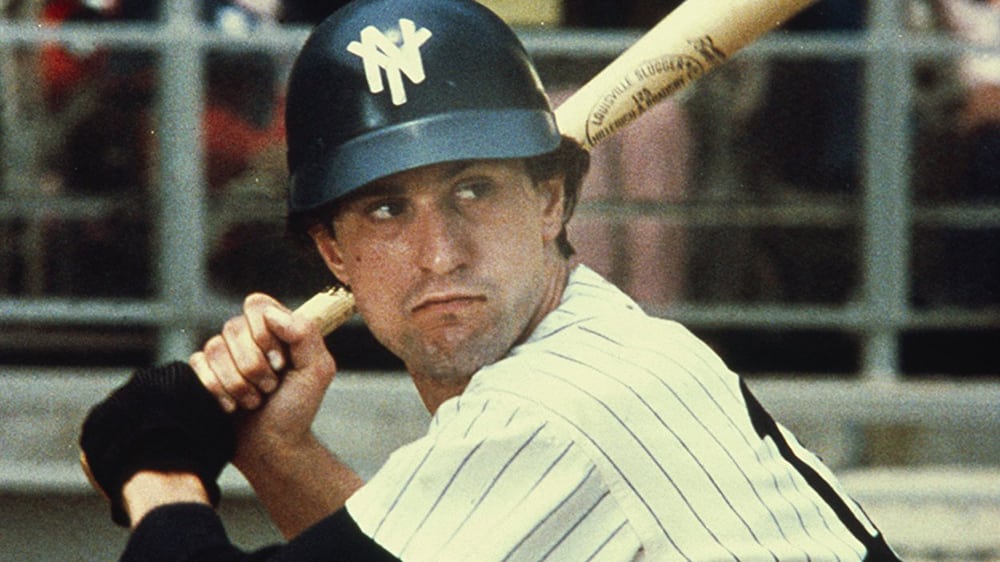
By the time he was approaching 30, Robert De Niro’s time for that all important big break had arrived. In 1973, his two seminal roles in Mean Streets and Bang the Drum Slowly established him as a serious actor worth paying attention to. Hooking up with Martin Scorsese also proved to be the making of the man we now know as the most intense actor of his age.
Before Mean Streets though, there was Bang the Drum Slowly, in which De Niro played Bruce Pearson, a baseball player suffering from the terminal Hodgkin’s disease. Although by no means a commercial hit upon release, it won wide praise and for his moving portrayal of the doomed and far from bright baseball player, De Niro won the Best Actor award from the New York Critic’s Circle Award. It’s his first ‘real’ performance in many people’s eyes and it makes the film. Sure, De Niro had been good in previous films, but here was a powerful performance that demanded you took notice of him.
The film was praised critically, with legendary critic Roger Ebert calling it “the ultimate baseball movie,” before adding that it was definitely more about baseball than death in his eyes. “I think I did OK,” were De Niro’s own words on his efforts. “It’s hard to be objective.”
9. The King of Marvin Gardens (1972)
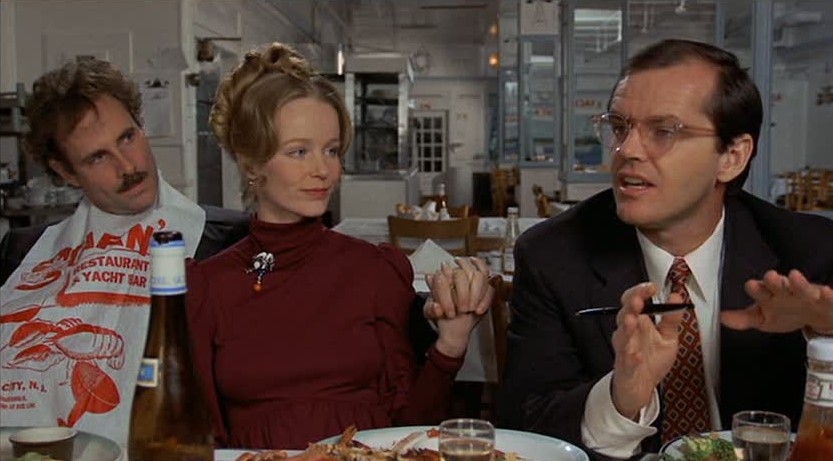
Bob Rafelson’s Five Easy Pieces has become a cultural phenomenon upon its release in 1970. His next instalment in the seventies New Hollywood boom was once again to star Jack Nicholson, even though Bob didn’t think Jack was right for the lead part. The same year he turned down both The Sting and The Godfather (he knew they would be successful, Jack later said, but he didn’t feel they were right for him), a major star with the finest scripts Hollywood had on offer laid out before him, Jack instead signed up for another round of disconnected Americana with Bob Rafelson, a low key and off beat drama that has built up a small cult following down the years, but is nowhere near as acclaimed as it truly deserves to be.
The King of Marvin Gardens is one of the least celebrated but most enjoyable films Jack did in the 70s, in that unmatched run of leading roles from 1970 through to 1975. He gives what is possibly his most subtle and measured performance (alongside his work in Antonioni’s The Passenger) in a film which is easy to overlook, given that nothing that remarkable occurs until the very end. Indeed, there are none of the fireworks Jack would later ignite as RP McMurphy. But the film has a slow, steady charm, and we simply enjoy being in the company of its characters, no matter what might – or might not in this case – be going down.
One of those special personal pictures with a European feel, it follows Jack and Bruce Dern as two brothers. Jack is David, a subdued man running a late night radio talk show (which very few people seem to listen to) who gets a call from Jason, played by Dern, asking him to bail him out of jail in Atlantic City. From here on in, he finds himself pulled into the colourful and unsavoury world of his formerly estranged brother, his brother’s girlfriend Sally (an explosive Ellen Burstyn), and her step daughter Jessica (Julia Anne Robinson). The movie ends in a devastating climax, which comes like a burst of thunder, totally unexpected and tragic.
When you look at the more subtle, melancholic American films of the early 1970s, The King of Marvin Gardens stands alone in its mood, its varied performances, and its hazy, sepia-tinged back drops. The King of Marvin Gardens is noticeably watered down in colour, with an air of sadness about it, though moments of light are provided by Dern and Burstyn’s lively performances, contrasting beautifully against Nicholson’s controlled manners. Though the finale is most certainly downbeat, as grim as it is unexpected, it is also perfect, and it’s impossible to imagine the movie ending in any other way.
10. The Onion Field (1979)
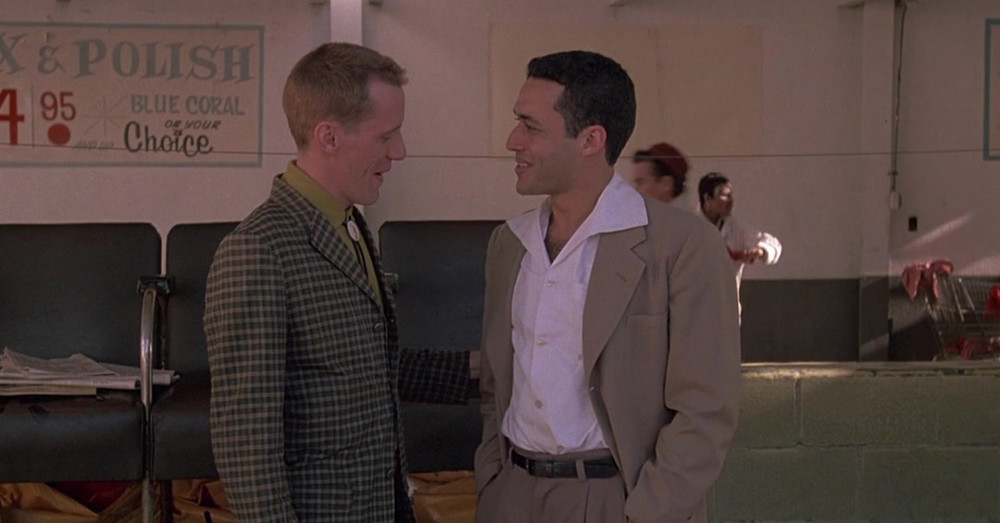
The Onion Field is a powerful and often very moving drama based on a true story, originally adapted into a book by LAPD sergeant and author, Joseph Wambaugh. It concerns the infamous murder of LAPD police detective Ian Campbell, and the escape of Officer Karl Hettinger from the scene of the crime.
The two officers had pulled over a car with suspicious drivers, Greg Powell and Jimmy Smith, the latter just out of prison, the former a crazed sociopath without a care in the world. Greg pulled a gun on the cops and forced them into their car, where they drove out to the outskirts of town. Pulled out of the vehicle, Powell murdered Campbell in cold blood, and Hettinger fled into the night. The subsequent farce of a trial to lock up the killers – among the most dragged out in US history – highlights the painfully fatal flaws in the legal system..
Produced by Wambaugh himself, and directed by the often overlooked Harold Becker (who later made Sea of Love), the finished film is a rare gem. Becker directs beautifully, a true actor’s director who lets the players get to grips with the material. He establishes a mood of unrest from the start, but it is only that fateful night when Campbell is killed that the atmosphere shifts into truly dark territory.
Becker and Wambaugh were aided by a terrific cast; Franklin Seales is brilliant as Jimmy Smith, while Ted Danson and John Savage are also very convincing as the two cops, the one sadly murdered, and the one that escaped with his body but not all of his mind. But the most striking and indeed disturbing performance comes from James Woods as Greg, a sociopathic narcissist who can turn the charm on just as quickly as he can draw a gun. This star making turn, which earned Woods rave reviews and a Golden Globe nomination, is a breathtaking, terrifyingly convincing piece of work which is right up there to this day as one of the finest acting feats of 70’s American cinema.
Rarely singled out as a solid 70s film, it’s largely unavailable these days and you will have to track down a second hand DVD if you want to see it. That said, it is more than worth the digging around. A remarkably effective film.